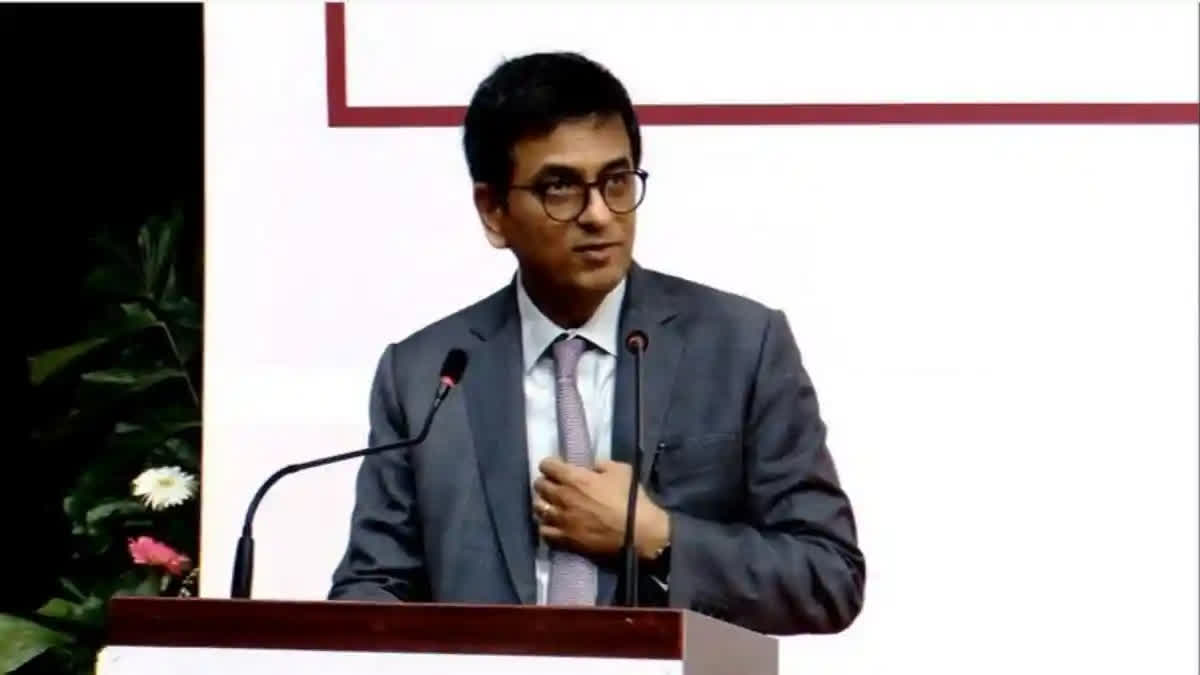New Delhi: Chief Justice of India DY Chandrachud on Saturday in the presence of Prime Minister Narendra Modi, Law Minister, Attorney General and Solicitor General said a crucial aspect of executive accountability rests on the ethical conduct and responsibility of law officers, who function not only as representatives of the government, but also as officers of the court, and they must remain impervious to the politics of the day and conduct themselves with dignity in courts.
Speaking at the Commonwealth Legal Education Association (CLEA)–Commonwealth Attorneys and Solicitors General Conference, the CJI said eminent jurist Nani Palkivala said, “The greatest glory of the Attorney General is not to win cases for the government, but to ensure that justice is done to the people.”
“Law officers bear a greater responsibility in upholding ethical standards compared to private practitioners, given their role as guardians of the rule of law. An exemplary figure in this regard is the late Soli Sorabjee, a former Attorney General, who, during his tenure, demonstrated a commitment to justice by advising the Union when it lacked a valid legal case”, he said.
The CJI said at this conference focused on law officers, it is pertinent to consider their pivotal role in upholding the ethics in legal practice. He said that law officers serve as the primary point of contact between the courts and the government, representing not only the government as an institution, but also the various departments and officials within it.
Justice Chandrachud said several other law officers also represent the Union and the states, including the Solicitor General, Additional Solicitor General, and Additional Advocates General for the states. The CJI stressed that law officers must remain impervious to the politics of the day and conduct themselves with dignity in court, ensuring the integrity of legal proceedings.
Justice Chandrachud said the Supreme Court has repeatedly emphasised that law officers and professionals should not only assist the administration of justice, but also uphold the honour of the legal profession through exemplary conduct from both within and outside the courtroom.
“Ethics in legal practice encompass a wide range of principles, each offering valuable insights into decision-making. Virtue ethics, for instance, underscores the importance of cultivating moral character and pursuing excellence in every aspect of legal work. In the context of the legal profession, this translates into a commitment to integrity, honesty, and professionalism in all endeavours”, said the CJI.
He said a crucial aspect of executive accountability rests on the ethical conduct and responsibility of law officers, who function not only as representatives of the government but also as officers of the court. The CJI highlighted a need to recognise the significance of cultivating a shared commitment to justice. The CJI said finally, as we stand at the intersection of tradition and innovation, technology emerges as a powerful force for justice. “While it promises to enhance the speed and accessibility of justice, we must navigate carefully,” he said.
“The deep-seated structural and financial hierarchies within Indian society demand consideration to ensure that technology does not inadvertently exacerbate existing problems,” the CJI said. The CJI said modernising courtrooms and facilities were as crucial as bolstering overall infrastructure and ensuring that technology serves to enhance transparency and accountability and not perpetuate opacity and inequality.
The CJI also referred to recent initiatives such as the implementation of a standard operating procedure (SOP) guiding courts in summoning government officials. “Importantly, it cautions against leveraging the power to summon officials as a tool to pressure the government, emphasising that such actions should be reserved for circumstances crucial to the administration of justice,” he said.
Prime Minister Narendra Modi, Supreme Court Judge Justice Surya Kant, Union Law Minister Arjun Ram Meghwal, Attorney General R Venkataramani and Solicitor General Tushar Mehta also addressed the gathering. Speaking at the occasion, Justice Surya Kant said this conference aims to bring together legal luminaries, scholars and practitioners in an effort to translate visionary ideas into tangible actions.
- " class="align-text-top noRightClick twitterSection" data="">
Read more: Power May Be Used To Liberate But Never To Oppress: CJI



